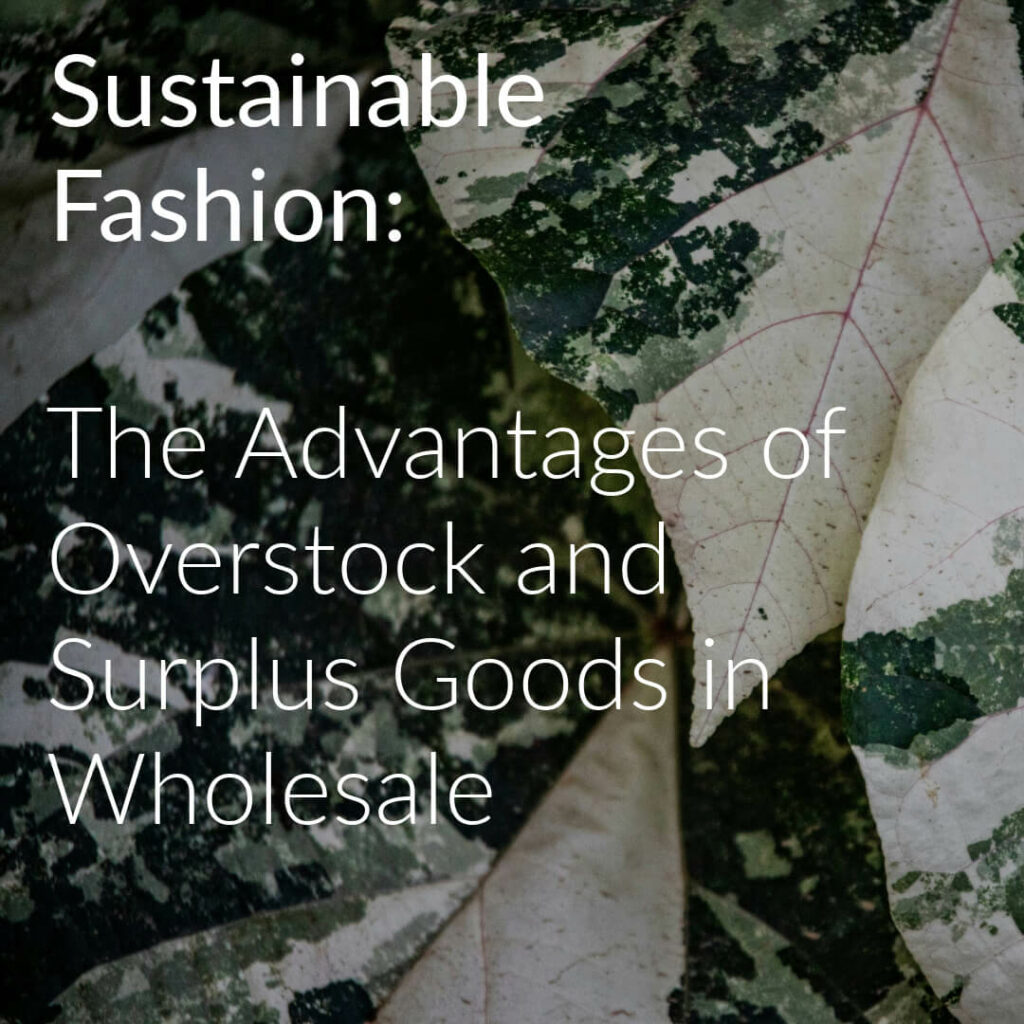In today’s fashion industry, sustainability is becoming increasingly important. Many companies and consumers are seeking ways to reduce their ecological footprint. One particularly effective method for acting more sustainably is the use of remaining stock and surplus goods in the fashion wholesale sector.
But what exactly are the benefits of these fashion items in terms of sustainability?
1. Reduction of Environmental Impact
Every item, whether branded or not, cannot be sold down to zero inventory. This is where we come in, specializing in reintroducing these items to the market at an especially favorable price-performance ratio. This helps to reduce environmental impact and avoid unnecessary consumption of resources.

2. Optimal Resource Utilization
The production of clothing requires significant amounts of water, energy, and raw materials. When already produced items are sold as remaining stock or surplus goods, it means these resources are not wasted. This optimizes the use of resources already employed and reduces pressure on natural resources. Especially in the fashion wholesale sector, trading in wholesale remaining stock can save substantial amounts of resources.
3. Extension of Product Lifespan
Selling surplus goods extends the lifespan of products and reduces the need for continuously producing new items.
4. Economic Benefits for Consumers
For consumers, remaining stock and surplus goods offer the opportunity to purchase high-quality fashion items at reduced prices. This makes sustainable fashion accessible to a broader audience, which in turn increases the overall market share of sustainable products. Our fashion wholesale offers you economic advantages, as we always guarantee our customers attractive prices.
5. Support of Circular Economy Models
The sale and use of remaining stock and surplus goods support the concept of the circular economy, where products, materials, and resources are used, recycled, and reused for as long as possible. This contrasts with the traditional linear economic model based on the principle of “take, make, dispose.” Wholesalers who invest in remaining stock and surplus goods actively contribute to promoting these sustainable economic models.
6. Promotion of Sustainable Consumption Habits
By utilizing and promoting remaining stock and surplus goods, companies and consumers help raise awareness of sustainable consumption. This leads to a long-term change in purchasing habits and a stronger demand for sustainable products.
Conclusion
Remaining stock and surplus goods offer numerous benefits for the environment and society. They help reduce waste, optimize resource use, extend product lifespan, and promote sustainable consumption habits. By integrating these items into your own assortment or wardrobe, everyone can contribute to a more sustainable fashion industry.
At Christmann-Jacoby Textilien, we are committed to offering high-quality surplus goods at fair prices, thus doing our part for a better environment. Our focus on fashion wholesale and wholesale remaining stock allows us to pass these benefits directly to our customers.



